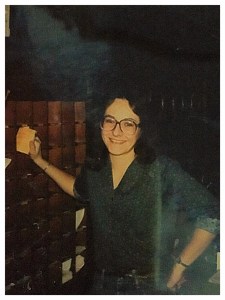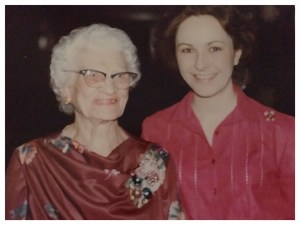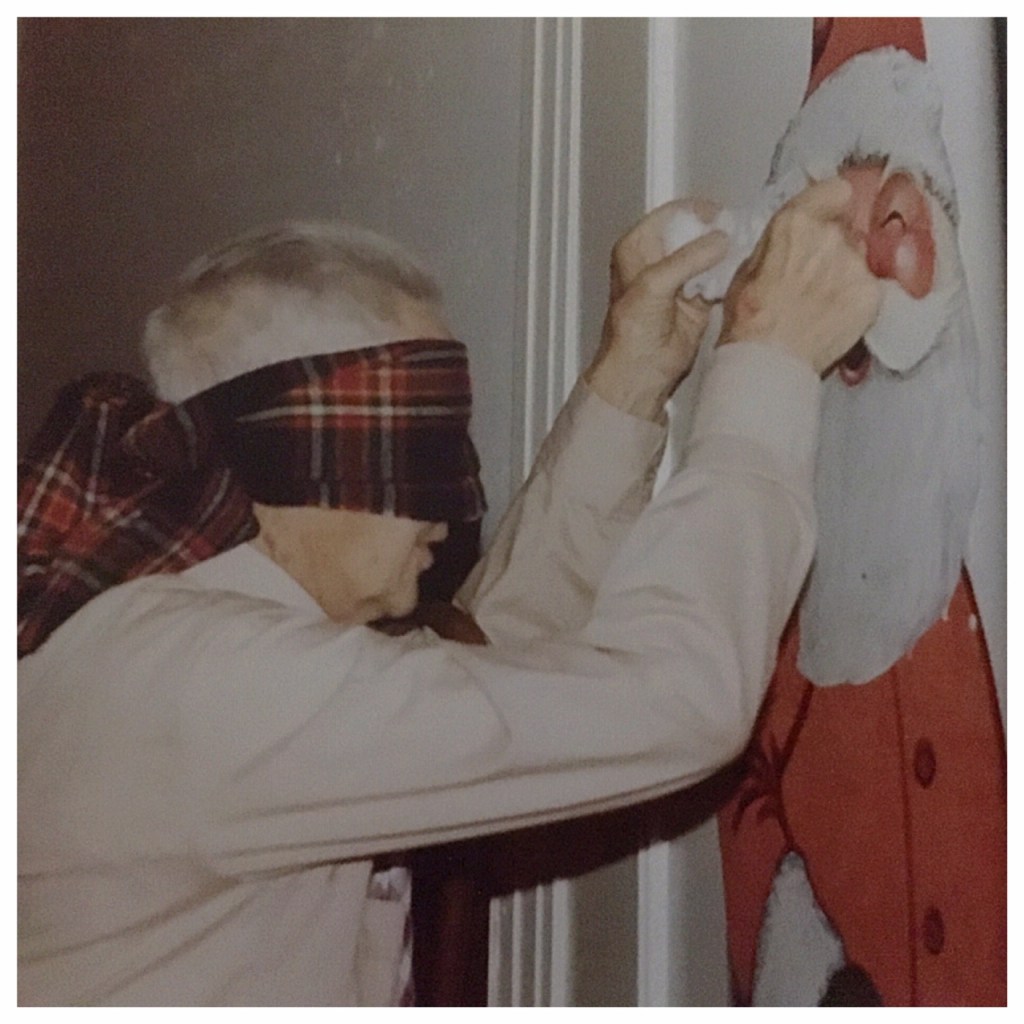Fifteen year old girls are not known for their willingness to accept change. I know this because I’ve been one and I’ve mothered a few. It’s a crummy age to ask certain things of this particular section of the population but life happens within families and sometimes happens in a big way. Occasionally 15-year old girls get cranky and surly and difficult and make statements like, “No. I’m not doing that.” and when they find themselves doing exactly that which they claimed they would not, it makes them crankier, surlier and more difficult. Thus we step into the summer of 1977 and my move from a perfectly fine, perfectly normal traditional 3 bedroom house to an apartment on the ground floor of a five story retirement home in which dwelt my parents, me, and approximately 45 wrinkled up old people. I lived under the dining room.
To make the story even more tragic and to place the proverbial cherry on top, the move was from Bentonville, Arkansas to Rogers, Arkansas between my sophomore and junior years of high school. If you are familiar with southern high school rivalries, well, just imagine Enemy Territory. Tigers vs. Mountaineers. It was 12 miles down the road but it may as well have been across the DMZ into communist North Korea as far as I was concerned.
Cranky, surly, difficult. Old folks home. Crankier, surlier, difficult-er.
What do you do with one of those? You put them to work. Weekends and after school and whenever else they acted like they needed it.


I worked the front desk at the switchboard with the long cords plugging in for incoming and outgoing (no, seriously!) and answering questions for people (because I knew everything, duh) and sorting mail, etc. And then there were the kitchen/dining room shifts. Ugh. That meant hauling it out of bed at 5:30 a.m. and hustling it up the back stairs to the kitchen to start laying out juices and cereals and helping the cook serve breakfasts. Slave labor I tell you! What came after meals was the prize . . . the dish room. Yep. Industrial dish washer where you shoved the trays in and out after washing all the uneaten oatmeal and who-knows-what down the disposal. Cranky, surly, difficult.
But strangely less so. Freda the Mean Cook liked me. Must’ve felt some sort of kinship in our personality traits. I started enjoying my shifts in the kitchen when she was the cook. We chatted. She was a no nonsense kind of gal who once had owned a bar and grill along some highway in Wyoming and could she ever tell stories. She would make cinnamon sugar crusties for me out of extra pie dough because she recognized that cranky, surly and difficult was still a little kid somewhere inside.

I also eventually came to appreciate many of the residents. And I was taught by my parents (who were somehow surviving living with me) to respect and listen to the old ones who really did know a thing or two.
Mr. Percival Farley was a wonderful classy gentleman. Tall, nearly bald with just a few wisps of snow white hair, and ever so slightly stooped as he walked carefully with his cane as though not wanting to bother anyone. There was trouble with his throat causing his voice to be not much above a whisper. Such a kind man. Spent dozens, no, hundreds of hours working jigsaw puzzles in the activity room which was either a testament to his patient personality or the cause of it.
Mrs. Ethel Marie Smith. Singing voice of an angel. Knew every word to multiple hymns, Christmas carols and pop hits from post WWII, but couldn’t remember that her bra should be worn on the inside of her dress. And she was always amiable about the suggestion of “Why don’t we try it this way today.” Lovely sweet smile.
Mrs. Dickerson hated me. Multiple times a day she would insist that I take her and her suitcases to the bus station to go see her daughter and upon my matter-of-fact but politely negative response each time, she would come back with a slight growl and the now infamous words, “You give me a pain I can’t locate.” And I would smile. And then we’d do it again in a couple hours.
Colonel Rudelius was an actual WWI (that’s a One not a Two) hero and had the medals in his room to prove it. But keeping him inside the building at night was a task for a small army — remember, this is long before the days of “Assisted Living” facilities with coded door locks and multiple staff members. We were a mom and pop and daughter operation during the nighttime hours. It wasn’t long after our move there that my 16-year old self picked him up in my car on the streets of downtown Rogers at 1:00 a.m. on my way home from an out-of-town football game. We must’ve been quite the sight, the two of us, and if the entire town hadn’t been asleep it might’ve been amusing to witness. I pulled over and invited him to get in. He agreed (thank you, Lord) and after arriving back home, getting him out of the car, through the door of the building and handing him over to the owners of the fine establishment (Mom and Dad), I’m sure I muttered something vaguely unsupportive about our new lifestyle and went to bed.
Mrs. Maddix turned 100 while I was home from college. Gorgeous, gracious, kindhearted lady.

Oh, and Mr. Rauth (“Route”) Barney Rauth. German. Short. Always smiling but it was hard to tell because of his bent back. He would strain to show you his face. And it was worth it. I loved him. He too was among the CC-ers — cane carriers, and never varied his gait or the rhythmic plunking down of his thick, short, three-footed cane. Know how I know that? His spot at breakfast, lunch, and dinner was right above my bedroom. If I was tardy arising from bed I could count on the “shuffle shuffle slam, shuffle shuffle slam” and would fly out of bed silently thanking Mr. Rauth knowing it was 8:00 a.m. Living under the dining room had its perks.
These old people (call them seniors or elderly or whatever you want, but they were old) were my training ground. I lived with them full time for my last two years of high school and much of the next year so I knew them well. They modeled aging to me. Some positively, some negatively. But there they were in full view of teenage me asking for more milk for their oatmeal, or calling the switchboard for the umpteenth time that day to ask what time it was, or needing help reading small type on an envelope, or telling me stories about one or two or three of their children who had died as babies. There was the day the tall lady with the crutch got into a scuffle with the short lady with a walker as they got off the elevator and I had to get in the middle of them and break it up. We all ended up giggling. Some were elegant. Some were rough. They cursed like sailors and prayed like Jesus. Two of them died right in front of me. Not all of their children or families loved them well, but some did. I watched both of those spectrums. Old is not easy. Dignity can be hard to come by. When it starts to slip through aging fingers it must be provided by others. I’m proud to say that after I left home and went about my way in life, my parents continued to provide that dignity for 23 years.
One thing all these old folk had in common was their embrace of celebration. And did we ever celebrate around there. The holiday parties my mother would plan for them were outstanding. Dad would bake and make candy, punch and appetizer trays like the Queen was in attendance. He would emcee and sing while Mom played piano for him, changing keys with ease whenever he would change his mind on a whim about where he’d like to sing. Oh the old folks would love the decorated room (I stood on many a rickety ladder hanging those old green tinsely things from the chandeliers in the activity room) and wear their best duds (bras on the inside). And oh the games. My teenage eyes would roll because surely no 90-year old would submit to being a human Christmas tree or (perish the thought) pin a mustache on Santa.

Grasping life lessons from day-in-day-out existence is like wringing a wet dishcloth. You think you’ve got all you can get and then you give it one more look, one more twist, and out comes another lesson, another drip or two. It will still be a while before I’m the age of these old ones among whom I spent my teenage years, but as time goes by I am starting to understand them more. That look in their eyes. Their need to participate and go to parties and to wear their best shirts and play games and feel compassion for surly teenagers. To stick the mustache on Santa. It’s true that I went into that place kicking and screaming (well, not literally, but almost) and I longed for a more traditional lifestyle, but in my fifty-something rear-view glasses I can see that the benefit outweighs the trouble of it all.
In my memory I can still hear Miss Bauerman from her perch as the matriarch at the round table in the back of the dining room loudly telling the ladies around her all about what she thinks about whatever she read in the morning newspaper. The slamming of the walk-in freezer and the conversations of the cooks. I can feel the weight of Mrs. Stafford as she collapses into my arms with a stroke and we call for the ambulance. Mr. Farley is at his puzzle table. Mrs. Figge is asleep in the lobby. I smell the Sunday roast cooking in the large ovens and hear my mother playing the activity room piano . . . “His Eye is On the Sparrow.” And I know all is well. There is much to be learned . . . from under the dining room.

You shall rise up before the grayheaded and honor the aged, and you shall revere your God; I am the Lord.
Leviticus 19:32 NASB

14 responses to “Under the Dining Room”
I began to smell the Townhouse (in a good way) as I read through that beautiful collection of memories. Thank you.
LikeLiked by 1 person
My favorite thus far. I still remember seeing some of these names. Awakened some memories for me. Thank you for sharing this.
LikeLike
This one could’ve gone on for chapter after chapter as you might imagine. I’m glad you recognized some names!
LikeLike
My favorite too. Brings back memories of living near all my grandparents and all they taught me about life and aging.
LikeLiked by 1 person
Thanks for sharing this, Molly. Since I was there visiting more than a few times, I can picture the dining room, the kitchen, your room under the dining room, etc.etc.
LikeLiked by 1 person
So enjoyed the story. I worked in a “rest home” when I was a Jr. in high school and grew to love those older folks so much. I don’t know that I would have wanted to “live” that close, but I went back and visited them whenever I came home from college. Precious people with great stories. One little Norweigian lady, Gunda, used to come out in her white nightie to the desk and say, “Please yust a little bit of premust” (which was some awful Norweigian spread for bread.) I just loved her. Great memories it brought back Molly. I can never imagine you being a nasty teenager somehow!!!
Lois Oleson
LikeLike
I’m glad you enjoyed it, Lois. Writing it made me remember lots of scenes that could’ve made it into an entire book! And truthfully I probably wasn’t all that awful…just miserable with the move and general teenage “stuff.”
LikeLike
This was wonderful Molly. We drove by the Rogers Townhouse one time we visited Rogers.
Your stories make me feel right there with you and feel like I would know the various people you write about.
LikeLiked by 1 person
Oh Molly! This story brought the Town House alive for awhile. I was there a few times for the churches parties and I thought it was the most beautiful place I had ever seen.❤️ I’m sure I would have felt the same way if I had been “made” to leave my home and friends for a place like that. But what great memories you have shared. We love you all and miss the good old days.
LikeLike
Wonderful days with all of you from Rogers 1st Naz. Love and miss you too!
LikeLike
What an amazing lesson you learned as a young person! You may have begun that journey less than happy, but I can sure feel the love you grew into as time went along. With Mom in assisted living, I see these dear people a lot, and so many would love to have a “surly” teen visit with them. Many have no one (other than the caregivers) to touch their lives. Beautiful memories Molly.
LikeLiked by 1 person
[…] would show up every now and then at the old folks home I had moved into (see previous post, “Under the Dining Room“). It was never quite the same though. Eventually (fast forward through some icky years that […]
LikeLike
Niice post thanks for sharing
LikeLiked by 1 person
Appreciate you stopping by!
LikeLike